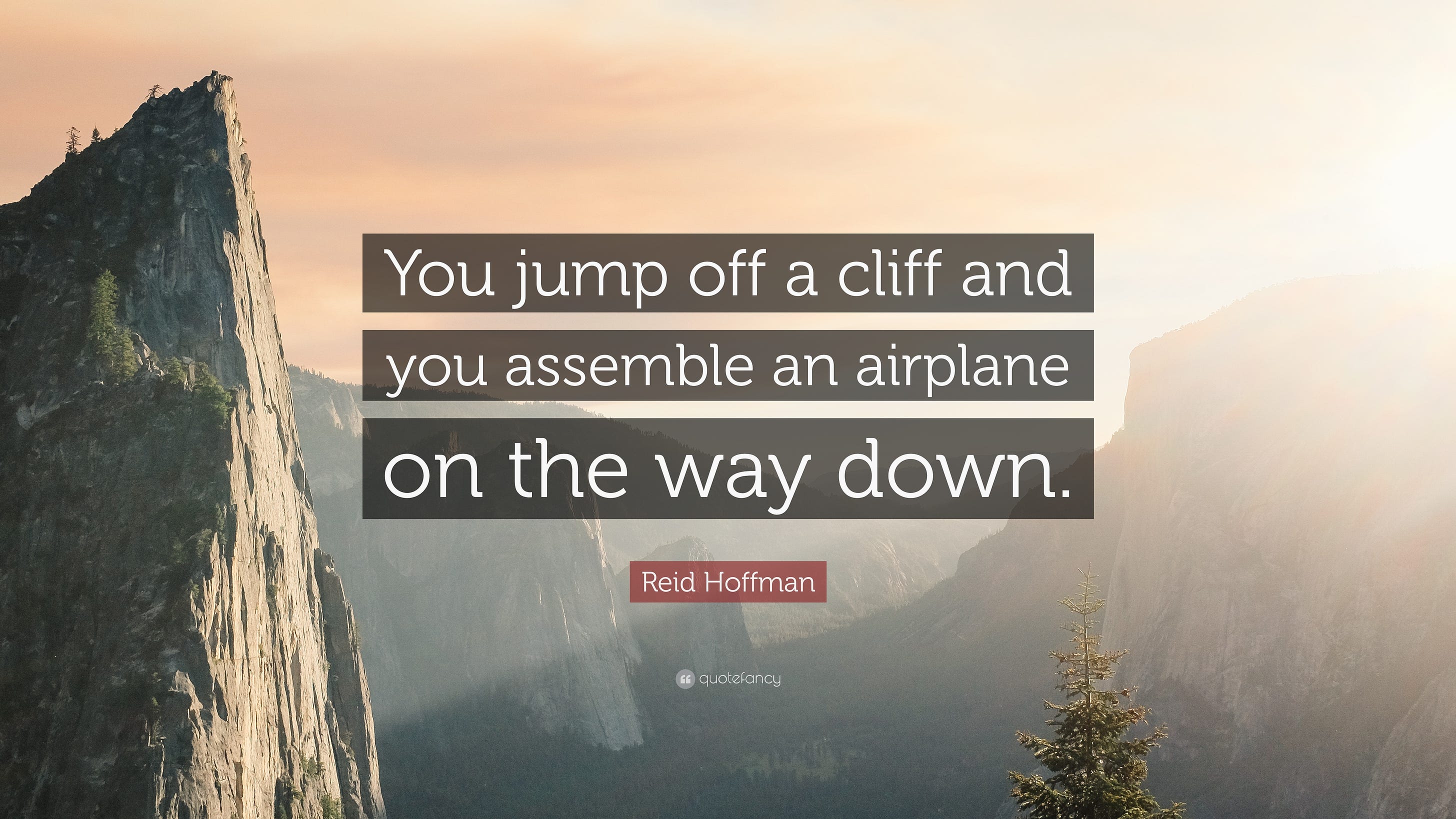Silicon Valley Outsider - My startup idea vs. entropy
Last week, a Mechanical Engineering student asked me a question that I found particularly thought-provoking: 📉 When did you know your startup was going to fail?It’s a fair question — you’d expect such a failure to have an acute cause. But the truth is messier. To understand why, it’s important to understand that startups start their lives as stories told by their founders. My story was a good one — it had heroes (my customers), villains (fraudsters), legendary weapons (my software), and a happy ending (my investors become billionaires, my customers get promoted). It was an exciting story, and believable. So believable, in fact, that a venture capitalist offered to write me a check for $500,000 to make it come true. But I turned him down. I said no to the check, shut down the company, and blew the dust off of my resume to go get a job at someone else’s company. Why? Well, it’s simple: my startup was always failing.The default state of being for any new venture is failure, and mine was no different: if I stopped working on it, nothing would have happened. I, alone, was willing it into being. The founder’s job is to fight entropy — to create something from nothing by bringing order to a small corner of an otherwise disorderly world. And once the founder stops fighting, or if they don’t fight hard enough, entropy wins. The ever-present danger of entropy isn’t unique to startups, of course: entropy always wins; all companies eventually fade into disorder and failure. (The average lifespan of a company today is 15 years.) Most companies combat entropy through the continued effort of their employees, and the best companies might even be able to survive without such effort. Warren Buffett famously said that the reason he loved Coca-Cola was that the company could be successfully run by a ham sandwich. I’d put some modern tech companies in that category as well: if every Adobe employee simultaneously decided to stop doing any work whatsoever, Photoshop would continue generating cash for months, if not years. Eventually, it would become obsolete or break without any maintenance, but not for a long while. (And probably longer than Adobe employees would care to admit.) Startups don’t have that luxury. Early-stage startups are default dead rather than default alive, so it takes the Herculean effort of early startup employees to keep the company from failing seemingly every day. A popular analogy for early-stage startup creation comes from LinkedIn founder Reid Hoffman: startup founders jump off a cliff and try to assemble an airplane before they hit the ground. That analogy holds for folks that have taken outside funding. But for me, I never got to that stage; I honestly don’t feel like my startup ever left the ground, because I said no to the VC-sponsored shuttle to the top of the cliff. I just never convinced myself that my story was true (i.e., that my blueprints would actually create a working plane).Admitting that my story was a fabrication was one of the hardest things I have ever done, because that startup was everything at that stage of my life — I had very publicly committed to it, I had thrown myself into innumerable embarrassing (or otherwise socially scary) situations to try to manifest it into the world, and I had promised and/or convinced a lot of people that it was possible. But my story just wasn’t true. I suppose that the last failure in the string of failures that precipitated my decision to shut down the company was only making it 70% of the way to an annual sales target that I set — but honestly, that failure was nothing compared to other, much larger failures that plagued me that first year. (Like the day I lost $1,000,000 and my co-founder quit.) I easily could have convinced myself that 70% of the way to the goal was close enough. Luckily, I had the wherewithal to admit defeat — and once I did, it was obvious that I had made the right decision. My startup didn’t fail in one sudden moment, it just never escaped the chronic state of failure in which every new venture starts.Entropy: 1, Christian: 0. But at least I lived to fight another day. Thanks for reading Silicon Valley Outsider! I’m Christian, the Chief of Staff of Astranis, and I write this newsletter for folks who are interested in startups but live outside of the SF Bay Area. If you want to join 650+ folks in getting an email from me each Monday, I’ll help you understand Silicon Valley using normal-human words. Here are a few past editions that you might like if you enjoyed this one: |
Older messages
Some advice that I no longer live by
Monday, March 21, 2022
Or, why taking advice from internet strangers isn't *always* a bad idea
Silicon Valley, the Meme
Monday, March 14, 2022
Silicon Valley is great at taking ultimately frivolous things seriously — and the best recent example is the Valley's obsession with memes. Memetics began with Richard Dawkins' book “The
There's more to Silicon Valley than software
Monday, February 7, 2022
My favorite startups are the ones building physical things for the physical world — but outside of Silicon Valley, few know that such startups exist.
How to make startup life less painful
Monday, January 31, 2022
Smiling While Engulfed in Flames: A Startup Memoir
My Journey from Minnesota to Silicon Valley
Monday, January 24, 2022
(Video) A presentation to Duke AERO
You Might Also Like
Animal Shine And Doctor Stein 🐇
Monday, March 3, 2025
And another non-unique app͏ ͏ ͏ ͏ ͏ ͏ ͏ ͏ ͏ ͏ ͏ ͏ ͏ ͏ ͏ ͏ ͏ ͏ ͏ ͏ ͏ ͏ ͏ ͏ ͏ ͏ ͏ ͏ ͏ ͏ ͏ ͏ ͏ ͏ ͏ ͏ ͏ ͏ ͏ ͏ ͏ ͏ ͏ ͏ ͏ ͏ ͏ ͏ ͏ ͏ ͏ ͏ ͏ ͏ ͏ ͏ ͏ ͏
upcoming analyst-led events
Monday, March 3, 2025
the future of the customer journey, tech M&A predictions, and the industrial AI arms race. CB-Insights-Logo-light copy Upcoming analyst-led webinars Highlights: The future of the customer journey,
last call...
Monday, March 3, 2025
are you ready? ͏ ͏ ͏ ͏ ͏ ͏ ͏ ͏ ͏ ͏ ͏ ͏ ͏ ͏ ͏ ͏ ͏ ͏ ͏ ͏ ͏ ͏ ͏ ͏ ͏ ͏ ͏ ͏ ͏ ͏ ͏ ͏ ͏ ͏ ͏ ͏ ͏ ͏ ͏ ͏ ͏ ͏ ͏ ͏ ͏ ͏ ͏ ͏ ͏ ͏ ͏ ͏ ͏ ͏ ͏ ͏ ͏ ͏ ͏ ͏ ͏ ͏ ͏ ͏ ͏ ͏ ͏ ͏ ͏ ͏ ͏ ͏ ͏ ͏ ͏ ͏ ͏ ͏ ͏ ͏ ͏ ͏ ͏ ͏ ͏ ͏ ͏ ͏ ͏ ͏ ͏ ͏ ͏
🦄 Dimmable window technology
Monday, March 3, 2025
Miru is creating windows that uniformly tint—usable in cars, homes, and more.
Lopsided AI Revenues
Monday, March 3, 2025
Tomasz Tunguz Venture Capitalist If you were forwarded this newsletter, and you'd like to receive it in the future, subscribe here. Lopsided AI Revenues Which is the best business in AI at the
📂 NEW: 140 SaaS Marketing Ideas eBook 📕
Monday, March 3, 2025
Most SaaS marketing follows the same playbook. The same channels. The same tactics. The same results. But the biggest wins? They come from smart risks, creative experiments, and ideas you
17 Silicon Valley Startups Raised $633Million - Week of March 3, 2025
Monday, March 3, 2025
🌴 Upfront Summit 2025 Recap 💰 Why Is Warren Buffett Hoarding $300B in Cash 💰 US Crypto Strategic Reserve ⚡ Blackstone / QTS AI Power Strains 🇨🇳 Wan 2.1 - Sora of China ͏ ͏ ͏ ͏ ͏ ͏ ͏ ͏ ͏ ͏ ͏ ͏ ͏ ͏ ͏ ͏ ͏
⛔ STOP paying suppliers upfront - even if they offer a cheaper price in return!
Monday, March 3, 2025
You're not really saving money if all your cash is stuck in inventory. Hey Friend , A lot of ecommerce founders think paying upfront for inventory at a lower price is a smart move. Not always!
13 Content & Media Deals 💰
Monday, March 3, 2025
Follow the money in media ͏ ͏ ͏ ͏ ͏ ͏ ͏ ͏ ͏ ͏ ͏ ͏ ͏ ͏ ͏ ͏ ͏ ͏ ͏ ͏ ͏ ͏ ͏ ͏ ͏ ͏ ͏ ͏ ͏ ͏ ͏ ͏ ͏ ͏ ͏ ͏ ͏ ͏ ͏ ͏ ͏ ͏ ͏ ͏ ͏ ͏ ͏ ͏ ͏ ͏ ͏ ͏ ͏ ͏ ͏ ͏ ͏ ͏ ͏ ͏ ͏ ͏ ͏ ͏ ͏ ͏ ͏ ͏ ͏ ͏ ͏ ͏ ͏ ͏ ͏ ͏ ͏ ͏ ͏ ͏ ͏ ͏ ͏ ͏ ͏ ͏ ͏ ͏
📂 EXACTLY how Teachable got the first $1M ARR
Monday, March 3, 2025
Here's what the founder of Teachable, Ankur Nagpal, said about growing Teachable to their first $1M in ARR. Later, they'd sell for $250M! Fall 2013 I was 24 years old and had just moved



